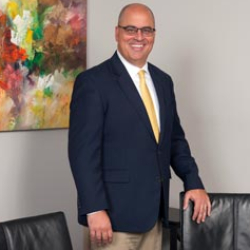As a law firm with some of the best probate lawyers in Michigan, we’ve guided several clients who were intimidated by the sheer idea of probate. In Michigan, the process revolving around probate can seem quite daunting. There’s a lot of legal jargon and paperwork involved. At the end of it all, you can’t help but feel exhausted.
The process can become a tad bit easier to handle if you know exactly what to anticipate. Whether you are a beneficiary, an executor, or simply curious, consider this article your comprehensive guide into the realm of probate.
So without much further ado, let’s dive in.
What is Probate?
Simply put, probate is a legal process that entails the closing of one’s estate after their demise. A typical probate procedure will involve a court validating the deceased person’s will (if it exists). Following this, the executor or the administrator of the estate will have to identify and inventory the assets, appraise these assets, clear any debts or taxes on them, and finally distribute the remaining assets to the beneficiaries as dictated in the will.
If a will does not exist, the state will determine what’s to be done with the deceased person’s assets. This is also a key reason why a good Michigan probate lawyer would advise you to draw a will in the first place.
As part of the probate process in Michigan, a personal representative is appointed to serve as the executor for the deceased’s estate. This individual will be responsible for managing the estate and seeing the probate process all the way through. The deceased person can appoint someone as their estate’s executor through their will. If a designated executor does not exist, it will fall upon the Michigan probate court to choose one.
When Does the Probate Process Become Mandatory?
You have to understand that not all estates have to go through a probate process. A probate will only come into effect if
- If the deceased person owned assets solely in their name and hasn’t designated any beneficiaries.
- The person passed away without a will.
- The deceased had a will but no living trust.
- A living trust exists but it is being disputed.
Above scenarios aside, Michigan has outlined certain circumstances where an asset might be exempt from going through probate. Assets held in a living trust, jointly owned assets, and assets with designated beneficiaries are exempt from the probate court.
Moreover, if the value of one’s estate is less than $25000 after funeral and burial costs, the probate process is significantly simplified and expedited.
For more clarity on when a probate process is necessary and when it isn’t, we suggest contacting a seasoned Michigan probate attorney.
The Steps Involved in a Probate Process
Now that you know what a probate process entails, let’s look at the steps that you can anticipate with it.
1. Filing the Petition
You kick-start the probate process by filing a petition with the probate court. This petition should be filed in the county where the deceased person lived. For instance, if the deceased was a resident of Grand Rapids, MI, the petition should be filed in this county.
The petition can be filed by any party connected to the deceased. It could be a family member, a creditor, or the executor appointed by the deceased themselves through their will.
2. Appointing a Personal Representative
As we mentioned before, you’ll need to appoint a personal representative to manage your estate after your death until the assets are distributed. If a will does not exist, the probate court will appoint this representative. In the absence of a will, the court usually goes with a close relative of the deceased as the executor.
It is in your best interest to get ahead of the court and appoint an executor yourself through your will. There are a plethora of seasoned Michigan probate attorneys who could help you craft a will and assign a personal representative for your estate.
3. Notifying Concerned Parties
The appointed executor or personal representative will be responsive to notifying all concerned parties about the imminent probate procedure. These could include beneficiaries, heirs, and creditors.
4. Identifying Assets and Taking Inventory
After all concerned parties are notified, the executor must identify all assets involved in the estate and obtain their appraisal. These assets could entail vehicles, real estate, bank accounts, personal belongings, etc.
5. Clearing Debts and Taxes
Once the executor has appraised the assets, they need to clear any debts or bills that the deceased person owed. The executor must also file the deceased final income tax return as well as any estate tax return.
6. Distribution of Assets
Once all debts and taxes are cleared, the personal representative will now have to distribute the remaining assets to the designated heirs as outlined in the will left behind by the deceased. In the absence of a will, it will be up to the Michigan court to decide what happens with the assets.
7. Closing of the Estate
The personal representative will file a final account with probate detailing what was done with the estate’s assets and how the expenses on it were cleared. Once the court approves this filing, the estate is closed, thus relieving the personal representative of its duties to the estate once and for all.
Common Issues Arising During Probate
During the probate process, several issues may arise to prolong the procedure and make it more complicated. Some common challenges that you might face include
- The validity of the will being contested by heirs.
- Struggle to identify and locate all of the deceased’s assets.
- Insufficient assets to clear debts left behind by the deceased.
- Family disputes.
Best Way to Handle the Probate Process
Here are some tips that could help you navigate the probate process smoothly
- Clearly communicate with all parties concerned with the estate. Keeps heirs and beneficiaries informed.
- A probate can take months to a year to conclude. So be patient and manage your expectations.
- Finally, seek professional help. Hire the best probate law firm in Michigan to shoulder the legal burden at your behest.
Conclusion
A probate is lengthy, complicated, and in most cases, unavoidable. It can become a source of great stress in your life if not handled properly. Fortunately, you don’t have to undertake the process yourself. Here at The Law Offices of Sean Patrick Cox, we are home to some of the best Grand Rapids Grand Rapids Probate Lawyers.
We have helped numerous people navigate the legal intricacies associated with probate and estate planning in the past. Perhaps we can do the same for you as well.
Get in touch with our law firm today to know how we can help you. Initial consultation with our attorney is free.

The Law Offices of Sean Patrick Cox is a lawyer. Sean practices in two main areas, family law, and elder law. he has represented clients in complex divorce cases since 1994.





